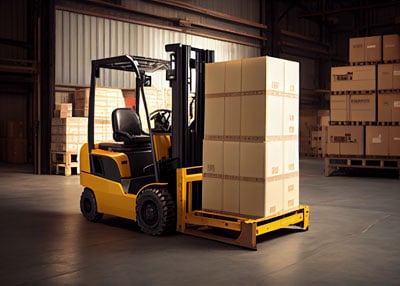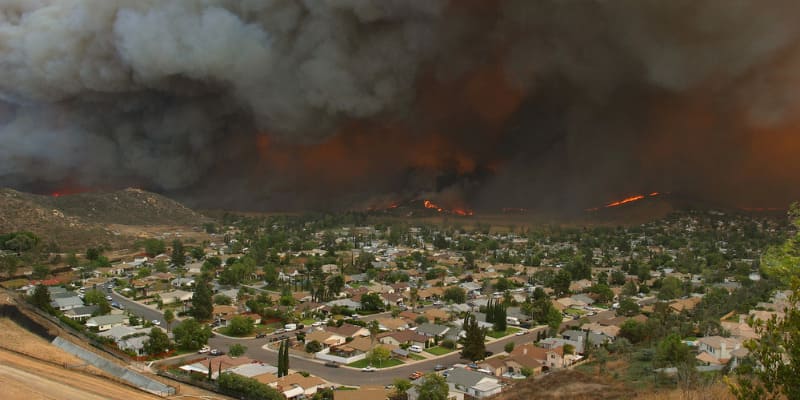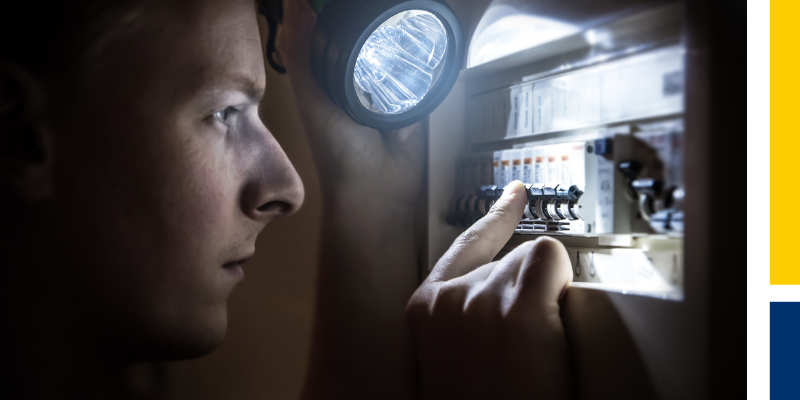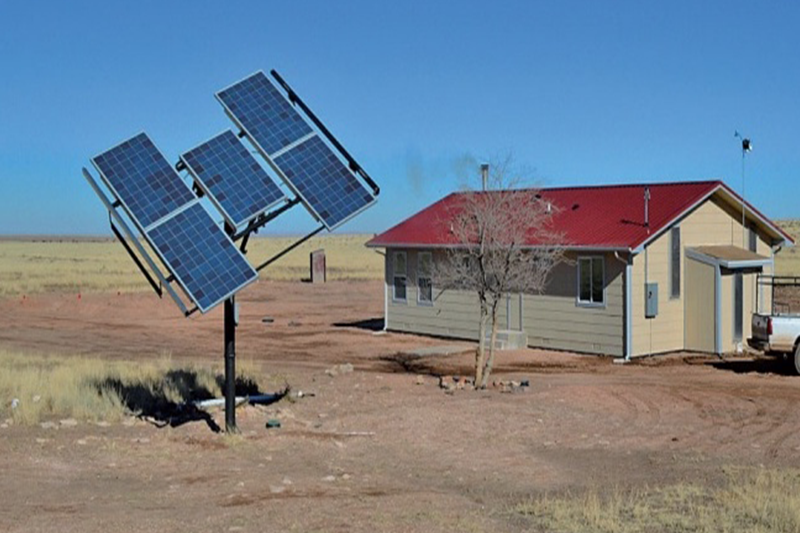Millions of people lose power yearly due to wildfires – and overloaded power grids, natural disasters, and fallen tree limbs.
There’s even a new way to lose power: sometimes, power companies just “flip a switch” and turn it off.
When wildfires strike, many utility companies turn off the power during high winds, peak hours, and forest fires -- and not just in California.
If you live nearby and have a well water pump, you’re out of electricity... so you can’t soak the ground, nearby plants, or your home’s walls to protect them from forest fires. That raises your risk of devastating fire damage.
But you don’t need to be near a wildfire to lose power for days. Because many outages stem from extreme temperatures (and soaring electrical demand), fallen tree limbs, other natural disasters, and equipment failure.
That’s a big problem because we depend on electricity. To heat and cool our homes. To use the internet and our computers. To stay safe and run our businesses.
Whether you face forest fires or “regular” power outages, you can take some simple steps to protect your family, yourself, and your business – and our team has curated some of the best strategies into one place.
In the next few minutes, you’ll discover:
- Exactly what to do when you lose power.
- Proven strategies to help protect your family and buildings if you have to evacuate.
- How to avoid short-term power outages altogether – and ensure you have safe, reliable backup power.
Let’s get started!
|
Checklist | What to do when you lose power. |
Yes/No |
|
Check whether your neighbors also lost power. If their power is on, check your circuit breaker or fuse box. Check the electrical service wires to your house to see if your breaker and fuses are okay. Call the electric company if they’re damaged or have fallen. (Put their number in your phone beforehand to save time.) |
|
|
If you use a water well, be sure it’s running and has backup power, especially during a wildfire. Spraying water on your plants, grounds, and home can reduce or prevent fire damage – but only if you have electricity to pump it. |
|
|
Unplug all electrical equipment, tools, and appliances, and turn down the thermostat on your heater to avoid power surge damage when the electric company restores power. (Alternatively, consider a battery backup system to ensure your house has power, even during brownouts, blackouts, and forced power shutdowns during forest fires and windy days.) |
|
|
Turn off all but two lights -- one outside and one inside -- to make it easier to know when the power comes back on. |
|
|
Do not use heating equipment for camping, charcoal or gas barbecues, or home generators indoors. They release carbon monoxide, an odorless and invisible gas that’s deadly. |
|
|
Double-check that you have a working carbon monoxide detector with a battery-powered backup. |
|
|
Protect your electronics, including TVs and computers, by unplugging them. (Consider installing regular surge protectors that guard against damaging electricity spikes. The National Protection Association also recommends Type 1 and Type 2 whole-house surge protective devices. Handy people can install them or hire an electrician. Whole-house surge protectors guard against significant power surges and reduce the risk of fires.) |
|
|
If you have a power generator:
|
|
|
If you have a battery backup system, you can continue to use your electrical devices as you normally would -- usually with no interruption in power. However, if you believe power will be out for an extended time, consider turning off power-hungry devices such as TVs, home theater systems, and air-conditioning to provide an extended period of backup energy. |
|
|
Cook perishable foods stored in your refrigerator before they spoil. |
|
|
Ensure you have food that doesn’t require refrigeration or cooking. Canned meats, soups, vegetables, and juices last months without refrigeration. For children, crackers, cookies, and snacks can make losing power more enjoyable and less scary. |
|
|
If possible, don’t open your fridge or refrigerator; wrap it in blankets for insulation. Experts say frozen food is still good so long as it has ice crystals. Pack food tightly in a camping cooler for extended outages. Chest freezers tend to maintain temperature longer because they’re often better-insulated and don’t lose as much temperature when opened. |
|
|
Ensure you have an alternative method to heat or cool your home, such as a wood stove (stock up), USB- or battery-powered fans, a gas-powered generator, or a battery backup system to keep your HVAC running. In the winter, wear layers and use blankets or sleeping bags as needed. |
|
|
Use a battery-powered (emergency) radio to stay informed. |
|
|
If you use an Uninterruptible Power Supply (UPS) for your computer, save your work and turn off your computer ASAP. Many UPS systems aren’t rated to power desktop computers for over a few minutes. |
|
|
Plan for no lights, TV, computers, etc. -- it’s the perfect time to play board games, read a paper book, talk with your family, or walk outside (weather permitting). |
|
|
Avoid car travel when possible. Roads will be busy; traffic lights won’t work, and electric chargers and gas stations likely won’t have power for you to refill, either. |
|
|
If the power goes out suddenly, wait for your eyes to adjust before moving to get flashlights. We recommend headlamps; they free up your hands. |
|
|
If you have a basement sump pump, try to lift valuables off the floor. Your sump pump is inside your home and uses electricity to move water away from your foundation. If the power is out, it can’t work -- and your basement could flood. |
|
|
Outdoor air quality is usually dangerous if you lose power because of a wildfire. And without electricity to energy your home’s HVAC system, the air you breathe isn’t being filtered anymore. Grab an N-95 or other mask to protect your lungs. |
(Note: The US Government’s Ready.gov covers additional information to protect yourself from wildfires: https://www.ready.gov/wildfires.)
What NOT to do after a power outage
-
Do not go into a flooded basement until and unless you’re confident that power is disconnected (that is, 100% shut off, not just temporarily out of service.).
-
Never use flooded appliances, breaker panels, or outlets until a certified electrician has cleaned and confirmed they’re safe.
|
What if you have to evacuate? If there’s time, prepare your home quickly: |
|
|
Turn off the following:
|
|
|
Drain your plumbing:
|
|
|
Disconnect your washing machine hoses and the drain. |
|
|
If you’re at risk of freezing temperatures, consider adding a small quantity of antifreeze to the remaining toilet bowl water and bathtub/sink traps. |
|
|
If there’s time, be sure to pack: Extra water (1 gallon/4L per person per day is optimal), food, clothing, medicine and medical supplies, passports, valuables, and sentimental items (family photos, hard drives with family pictures and work projects, etc.) |
|
|
Follow instructions from your local authorities. |
|
How to avoid short-term power outages – and protect your family, home or business, and possessions.
When the power grid goes down, some people have to drop everything.
Others can still power critical appliances and equipment – or even entire buildings – as if nothing happened. That’s because they already put backup power in place.
Here are some ways to keep your home or business powered up, even if the electrical grid goes down:
- Generate renewable energy from solar, wind, or micro-hydro systems. (You’ll still need to store excess energy when your system isn’t generating it.)
- Buy a fossil-fuel-powered generator, ample reserve fuel, or a natural gas connection (if a generator is allowed where you live).
- Get a Home Battery or battery bank to store power from the electrical grid (during normal conditions) and renewable energy sources.
Each approach has pros and cons, and there is no one-size-fits-all solution.
For millions of homeowners, as well as businesses, hospitals and schools, and government installations – a battery backup or Home/Building Battery is optimal because of its lower operating costs, high dependability, no-smell and whisper-silent operation, and environmental benefits (no burning fossil fuels).
Whether you want a backup battery to keep the lights on for the day, or a more extensive system that keeps your home running comfortably when everyone else is throwing out everything in their fridge, the resources below will help you make an informed decision:
- How Much Power Do I Really Need?” The Truth About Sizing, Depth of Discharge, and Surge Capacity (North American Clean Energy)
- Battery Backup to Off-Grid - Navigating the Transition (North American Clean Energy)
- 5 Lessons You Can Learn from Battery Torture Tests (Solar Power World)
- How to Properly Size a Battery System (Solar Power World)
- Fountain of Youth: Secrets of Active 24-Year-Old Lead-Acid Batteries (North American Clean Energy)
- Central Asia’s Largest Off-Grid Solar Power System: Bringing Electricity & Hope to Afghanistan (North American Clean Energy)











